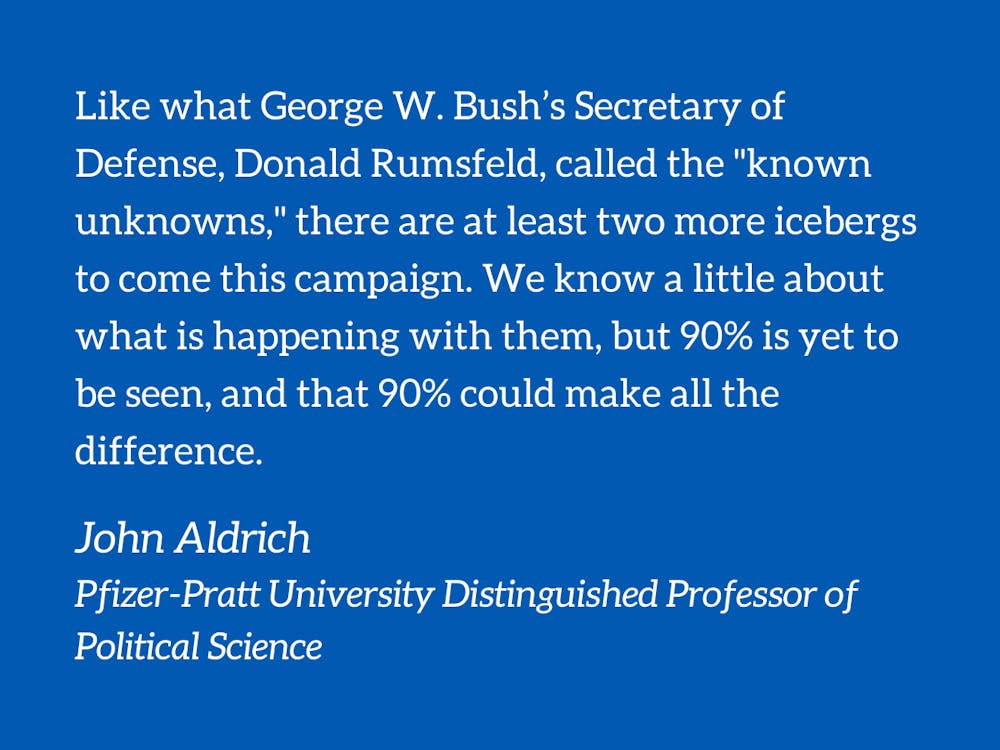Roughly 10% of an iceberg is visible, standing above the water line. Most of it is hidden.
While 2024 has been a dramatic, even shocking, election season already, who knows what is yet to come that we don’t know about. Like what George W. Bush’s Secretary of Defense, Donald Rumsfeld, called the "known unknowns," there are at least two more icebergs to come this campaign. We know a little about what is happening with them, but 90% is yet to be seen, and that 90% could make all the difference.
One iceberg is voter registration. There are various groups that need to register to be able to vote in 2024: young people reaching voting age since 2022, new citizens, those who have moved sufficiently across border lines that they need to register at their new location — and a very large number of citizens who either have never registered or who have failed to vote for so long that their names have been "purged" from voter rolls and therefore need to register to be able to vote in 2024.
Registering enough folks to vote for your party’s candidates can make all the difference. This is true in the presidential battleground states, but it is true of many other contests, too. The Montana Senate race, for example, is a close contest, even though the presidential contest in Montana is decidedly not close. Virtually every state will have a number of close contests, and adept registration drives might be enough to pull victory out of the jaws of defeat.
For the most part (maybe for that unseen 90%), we have no idea or way to figure out how voter registration is going. This became clear when enthusiasm for the Democratic ticket surged after President Biden withdrew. There is convincing evidence that registration drives are reporting more success than before, but by how much, where, and even more importantly, by how much more than for the other side? We don’t and possibly can’t tell, — at least until after the election.
The second iceberg is election administration. This includes rules changes since 2020 or 2022, some of which we can observe, but it also includes the administration of rules. Stories mount of the Republican Party seeking to appoint local election administrators favorable to their side. How successful have these efforts been? We have some sense of this, but basically, who knows?
More importantly, how have the rules changed and what are the choices they face in turning those new rules into the actual administration of elections? The pandemic caused many states and localities to change how early voting, absentee voting, voter registration and other aspects were implemented. Because those new procedures were designed to make it easier for people to vote, it tended overall to help Democrats, but not by that much. At least that is what the best current research seems to be saying, but that is research that is still coming out — four years after the fact.
What does this mean for 2024? Just like voter registration drives, election administration happens most fully at the local level, making it hard to see the full picture — indeed, to see much of the picture at all. To be sure, from what we can see from the 10% of the iceberg, it seems to be working to the benefit of Republicans. But the other 90%? Who knows?
Perhaps there will be more substantive “October surprises” to come yet this campaign. But even if not, we do know that registration drives and election administration will make a difference. We just don’t know how big a difference — or who they will help and by how much.
John Aldrich is the Pfizer-Pratt University Distinguished Professor of Political Science. This piece is part of the “Virtues of Democracy” column, a series of op-eds by faculty and student contributors across Trinity College and the Sanford School of Public Policy. The column typically runs on Tuesdays or Thursdays.
Get The Chronicle straight to your inbox
Sign up for our weekly newsletter. Cancel at any time.

